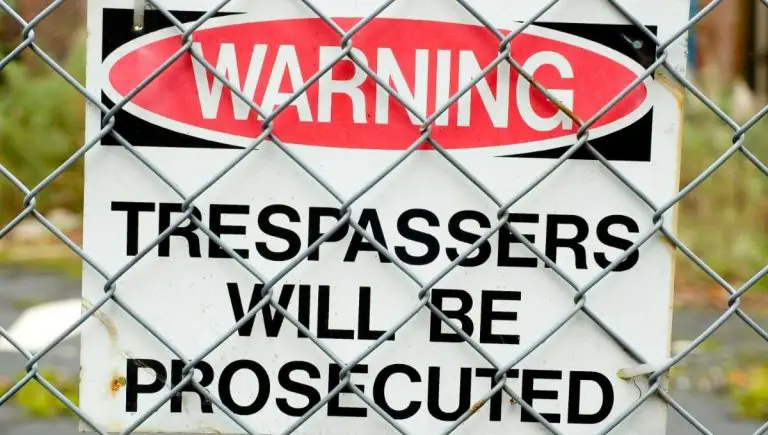My Neighbor Killed My Cat! (Do This to Get Justice ASAP)

Dealing with the loss of a beloved pet can be a difficult and emotional experience, especially when the loss was caused by another person. If your neighbor has killed your cat, you may wonder what steps to take to get justice.
If a neighbor killed your cat, bring its remains to a certified vet for a necropsy examination. This will provide documentation and evidence for a lawsuit against your neighbor for animal cruelty. Keep copies of all documentation and evidence for your records.
Indeed, it’s not a fun topic to discuss, but we want to help you. In this article, we’ll discuss what happens if your neighbor harms your pet, what you can legally do to sue them, and what you will receive if you decide to proceed. We’ll also discuss what will influence a court decision when sentencing someone for animal abuse.
In this blog post, we’ll discuss what happens if your neighbor harms your pet. We’ll also cover what you can legally do to sue them and what you might receive if you decide to proceed.
We’ll also discuss what will influence a court decision when sentencing someone for animal abuse.
This post contains affiliate links from Amazon and other stores. This means Yard Blogger may earn a commission if you make a purchase using any of our links. Please refer to our full affiliate disclosure policy for full details.
Here’s a Quick Pro Tip!
When a neighbor threatens to harm your furry friend, you have to take extra safety measures to keep it safe. For example, you can get a leash or a cage or simply keep them indoors to avoid any incidents. Here are tools you can use to keep your cat safe:
1. Escape-Proof Kitten Leash – Keep your kitten safe within your property without hurting them by using this leash. It’s not only protective but highly fashionable!
2. Playful Cat Cage – Keep them inside, but also let them play! This cage will not only prevent your cat from escaping but also won’t bore it.
3. Security Cameras – Keep a closer look at your cat with this indoor and outdoor surveillance!
Neighbors Attacking Cats
Before getting into the legal aspects of animal abuse, let’s look at what you can do if you find your cat’s remains and suspect your neighbor is the culprit behind it.
What Can I Do if My Neighbor Killed My Cat?
Depending on how it happened, if your neighbor killed your cat, you should take it to a vet or an expert to execute an autopsy on the animal’s body. That way, the vet will notify you about the severity of the damage it suffered.
If your neighbor hurt your cat physically because it was hit or someone used a firearm against it, you should take it to your nearest vet to have its remains undergo necropsy. Necropsy is the same thing as an autopsy, but for animals.
The experts will examine the body in both processes and even execute lab tests to determine if the animal was directly harmed or poisoned.
Then, with the evidence they can provide, you can sue your neighbor in a small claims court for killing your cat.
What to Do When a Neighbor Kills Your Cat on Purpose?
If you’re aware that your neighbor killed your cat on purpose, you should take the animal’s body and have it undergo necropsy and lab testing to determine how bad the damage was. This will give you evidence that can help you sue your neighbor.
First, you should alert your local authorities about the incident. If local law enforcement fails to take your situation seriously, constantly follow up until you finally receive the justice you’re looking for.
If you decide to proceed legally, you should be able to document all the evidence collected regarding the information about your pet’s death, including but not limited to the following:
- Lab testing bills
- Necropsy bills
- Testimonies from fellow neighbors who witnessed the incident (or incidents) that led to this tragedy
- Your testimony of the events that transpired (including approximate time, date, and relevant details about what transpired before the incident)
- Lab test or necropsy results
The more concise documents you have, the more success rate you’ll have if you decide to file charges against your neighbor in a small claims court.
If you witnessed the crime first-hand or received a previous, documented threat, don’t hesitate to call 911.
What to Do About a Neighbor Poisoning My Cat?
The proper way to proceed if a neighbor is poisoning your cat is by taking your animal to a local emergency pet hospital. Then, have it lab tested to determine what type of poisoning it received, and use this evidence against your neighbor in court.
You’ll want to take your pet to the hospital after each poisoning, increasing its chances of survival. If it survives, you can use the evidence from the hospital to sue your neighbor for animal cruelty.
My Neighbor Threatened to Kill My Cat?
If you receive a threat from your neighbor about killing your cat because they see your pet roam around their house or neighborhood, alert local authorities immediately. You must also document future threats in case something does happen. This can help prosecute them.
Additionally, take extra measurements to protect your cat. Include everything it needs inside your house, including ways to play around.
Leaving them outside for a long time is not recommended if your neighbor threatens to harm your cat.
What Happens if Someone Kills Your Cat?
If someone kills your cat, you should know that they can be legally prosecuted for animal cruelty, as many laws across the United States forbid harming an animal. If you are sure about the culprit, we suggest you report them to the police.
However, only report them if you are 100% sure about the culprit, mainly if they’ve verbally expressed threats against your cat before.
Then, gather necessary evidence before suing the neighbor to ensure everything is clear and there is no room for misunderstandings.
Laws Protecting Cats
Taking care of your pet is probably one of your top priorities. After all, they’re family. So, if something happens to them, you want to get justice. In this section, we’ll discuss the laws that protect your pet.
Is Killing a Cat a Crime?
Killing a cat can be deemed a crime in many states, mostly under certain circumstances, depending on the laws applicable to that area. Additionally, the Preventing Animal Cruelty and Torture Act protect all animals under federal law.
For example, in Alabama law, cats are protected under animal cruelty offense, whether this cruelty was through negligence or intentional.
They only let their citizens eliminate a cat if such a cat is a threat to their property in any way, and of course, under certain circumstances.
What Is the Punishment for Killing Cats?
Depending on the state laws that apply to your state or area, the punishment someone can receive for killing cats can be facing up to seven years of imprisonment or severe fines from the local government.
Yet, it depends on the state and the area. Some states allow killing cats to protect agricultural lands, but others simply forbid it, regardless of the situation that may have happened.
Is Killing a Cat an Offense?
In most states in the United States of America, killing a cat can be a criminal offense that may lead the culprit to spend seven years of jail time. This estimate doesn’t include aggravating factors courts may consider, depending on the nature of the crime.
Each state has rules regarding how to sentence a person, codified in their Criminal Code, and it often specifies the aggravating factors that may alter the final sentence.
So, while we confidently express that a person convicted for animal cruelty (in the form of killing an animal) can easily be subject to seven years of prison, know that it can either be increased or decreased depending on the nature of the crime.
For example, if someone kills a cat due to negligence, factors that could determine the final sentence imposed by a judge could be:
- Were they aware that their actions would put the animal at a severe health risk?
- Was the negligence foreseen, and yet, nothing was done?
- And did they purposefully neglect the animal due to irrational or emotional impulses?
Can Someone Go to Jail for Killing a Cat?
A person can go to jail for killing a cat in states that have explicitly forbidden it under their anti-animal cruelty laws. However, the sentence may vary depending on the circumstances that lead to the crime.
So, contact your local authorities or file a lawsuit if you believe someone purposefully harmed a cat, and even more so if you have evidence to prove it.
If local law enforcement does not take the case seriously, make a follow-up.
Can I Sue the Owner of a Dog That Killed My Cat?
You can sue the owner of a dog that killed your cat if you can prove that the dog was left out of the house carelessly. Since the dog wasn’t supposed to be outside, its owner can be liable for its actions.
However, the best action to take is to contact a local expert attorney who can guide you because not all cases are identical.
In addition, specific details may change the course of events that can happen if you file a lawsuit; thus, it’s best to have expert advice.
Are Cats Protected by Law?
Cats, like any animal, are protected under the law in many states because of the PACT Act, which prohibits animal cruelty in the United States. Thus, nobody can kill, harm, or poison a cat without suffering major consequences.
The PACT Act protects all types of animals and their respective races. From this Act, systems of justice have passed laws protecting animals and prohibiting abuse.
Some of these laws include prohibiting causing harm, intentional or unintentional, to an animal or exploiting them for labor purposes.
Additionally, these laws have recently prohibited sharing gruesome images of animal abuse.
You might also enjoy our post on What to Do if Your Neighbor Has a PitBull
Acts and Punishments for Animal Cruelty
Now that we’ve discussed common laws regarding what may happen should someone kill your cat, whether intentionally or unintentionally, let’s move on.
Next, we’re discussing animal cruelty and its punishments.
What Is Section 11 in the Animal Cruelty Act?
According to Canadian law, section 11 of the Ontario Society for the Prevention of Animal Cruelty Act establishes that all pet owners must provide proper and correct care to their pets. Moreover, it also forbids putting animals in any type of distress.
In the case of the U.S., animal cruelty did not become a federal crime until 2019, in the Prevention of Animal Cruelty and Torture Act.
Previous acts only focused on preventing animal abuse in cruelty in commercial areas. Still, the 2019 Act prohibited “animal crushing,” which explicitly states that anybody who purposely harms, tortures, burns, mutilates (and so on) an animal can be imprisoned for up to seven years.
What Is Considered Cat Abuse?
Actions considered as cat abuse include, but are not limited to, neglecting your cat’s care, like avoiding giving them food at adequate times; harming them physically, whether by hitting them with your hands or a hard object; and torturing them.
Of course, the definition of cat abuse can vary per state, but the basics are primarily any action that can alter the way of life of a cat in a way where it’ll be in constant physical danger because of its owner.
What Is the Maximum Punishment for Animal Cruelty?
The maximum punishment for animal cruelty can include seven years of prison, huge fines, or a combination of both. In addition, committing animal cruelty violates federal law, so the culprit can face huge consequences depending on how the crime transpired.
However, some cases surely will call for special attention, as the aggravating factors may vary depending on how bad the crime was.
Additionally, taking someone to court and proving their guilt may be more difficult than imagined.
Is Animal Abuse Punishable, and Under Which Act?
Animal abuse is punishable under the Prevention of Animal Cruelty and Torture Act, passed by Congress in 2019. This act made animal abuse a federal violation in the United States.
Another act that was signed for the protection of animals was the Animal Welfare Act. This act protects the animals used for lab testing, companion animals, and the like.
Their focus was on prohibiting animal suffering under any circumstance.
Related Questions
What Should I Do if My Dog Accidentally Kills a Cat?
Before panicking, you should consult an animal behavioral specialist who can guide you into comprehending your dog’s behavior. For example, sometimes, dogs can play roughly with cats and thus end up harming them without the intention of killing them.
But, if your dog’s actions were because they were outside a couple of hours without proper supervision, you have to prepare yourself for a lawsuit in case this cat belonged to a neighbor.
Therefore, we encourage everybody to keep their pets indoors and properly supervised. Not doing so can lead to fatalities like this one or worse.
Is a Cat Classified as Property?
All animals, cats included, are classified as property, and laws applicable to personal property, such as a purse, can also apply to them. Additionally, other laws protect them from being abused, stolen, or mistreated since they are living creatures.
This is also why if you file a lawsuit against someone for harming your pet, you’ll only be able to claim the value of the expenses of examining its body and the emotional damage it causes you.
If a person kills a cat in a state where killing all types of animals is forbidden, regardless of the situation that may have triggered the act, they are likely to be prosecuted for a criminal act.
And even then, you’d have to contact proper attorneys to get it done.
Does a Dog Have to Be Put Down if It Kills a Cat?
A dog does not always have to be put down if it kills a cat. However, under certain circumstances, specifically, if it’s determined that your dog has become too aggressive or cannot be controlled via a behavioral specialist, it may be ruled a danger.
It mostly depends on the circumstances of how and when it happened. For example, if a cat went to your property and your dog attacked it, surely it could be deemed as if your dog was protecting the property.
Final Thoughts
Harming an animal is not cool under any circumstance, which is why many state laws and acts protect them from receiving abuse.
If someone near your neighborhood is constantly harming, neglecting, or killing animals, it’s your responsibility to contact local authorities to report the incidents and proceed with a criminal lawsuit.











